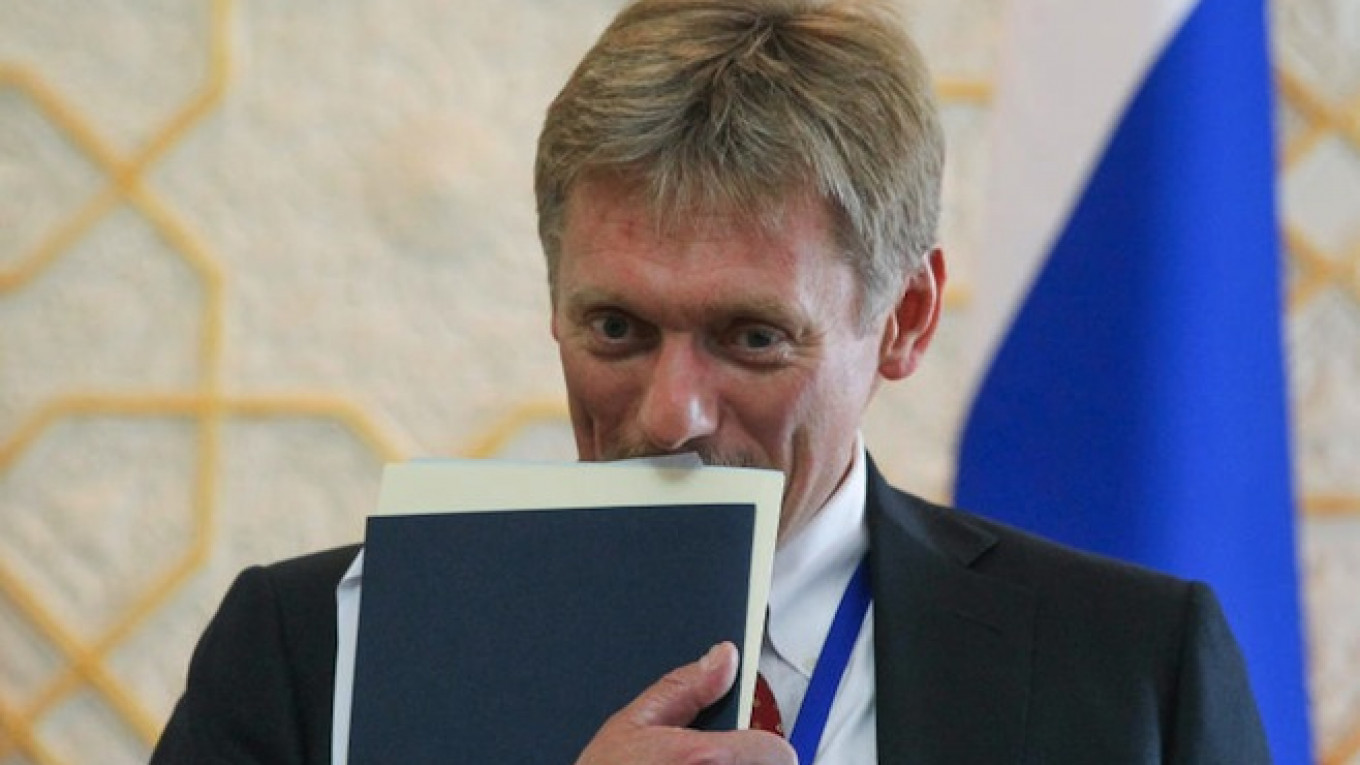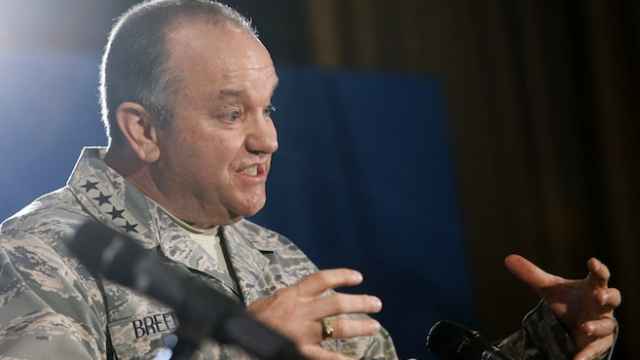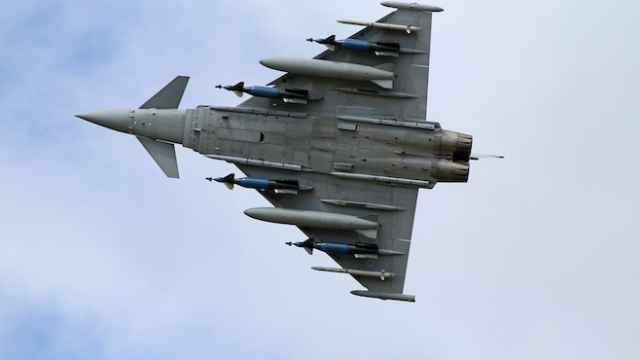Kremlin spokesman Dmitry Peskov has said reports that Russia would provoke a nuclear showdown with the West over Crimea or NATO's presence in the Baltics should “not be taken seriously.”
Peskov on Wednesday commented on a report by British newspaper The Times that claimed to have obtained notes from a secret meeting of Russian and American intelligence figures last month.
The report, published Wednesday, cited an unidentified American participant at the high-level meeting as recounting how Russian delegates had listed three scenarios in which Moscow was prepared for direct — and possibly nuclear — confrontation with the West.
The scenarios reportedly listed by the Russian delegates included a reaction to any attempts by the West to return Crimea to Ukraine or the arming of Ukrainian government forces by NATO in eastern Ukraine, where pro-Russian rebels have established an unrecognized confederate that Moscow calls “Novorossia,” the Times reported.
The Russian representatives, reportedly briefed by Russian Foreign Minister Sergei Lavrov, also detailed a “spectrum of responses from nuclear to non-military” that would play out if the NATO alliance tried to beef up its presence in Latvia, Lithuania and Estonia, The Times cited the unidentified participant as saying.
But Kremlin spokesman Dmitry Peskov on Wednesday denied that Russia was prepared to go nuclear in its standoff with the West, dismissing the claims as little more than mud-slinging by the British media.
“This is a classic example of the ongoing [attempts] to demonize our country,” Peskov was cited as saying by the Interfax news agency, adding that such reports only served to fan the flames of the so-called “information war.”
“First they exaggerate the reports, without basing them on any concrete facts, and then they scare themselves with their own words,” Peskov said, adding such publications “were not to be taken seriously.”
Peskov also said comments made last month by President Vladimir Putin — in which the leader said Russia's nuclear weapons were put on standby during its annexation of Crimea last spring — had been taken out of context and that Russia had never threatened nuclear action over the peninsula.
During the three-hour documentary, aired last month to coincide with the year anniversary of Crimea's annexation, Putin told state-run channel Rossia-1: “We were ready to do this [put our nuclear weapons on standby]. I spoke to my colleagues and told them that [Crimea] is our historic territory, Russians live there. They were in danger. We couldn't abandon them."
Putin then added: : "Despite all of the difficulties and the drama surrounding the situation, the Cold War is over, and we do not need international crises like the [Bay of Pigs]. Moreover, the circumstances did not call for such actions, which would have been contrary to our own interests."
The Baltic states, home to hundreds of thousands of native Russians and Russian-speakers, are become increasingly wary of Moscow's intentions, appealing to NATO to protect them from a Crimea-style Russian takeover. Lithuanian lawmakers in March voted overwhelmingly in favor of restarting military conscription in response to ongoing geopolitical tensions in the region.
A Message from The Moscow Times:
Dear readers,
We are facing unprecedented challenges. Russia's Prosecutor General's Office has designated The Moscow Times as an "undesirable" organization, criminalizing our work and putting our staff at risk of prosecution. This follows our earlier unjust labeling as a "foreign agent."
These actions are direct attempts to silence independent journalism in Russia. The authorities claim our work "discredits the decisions of the Russian leadership." We see things differently: we strive to provide accurate, unbiased reporting on Russia.
We, the journalists of The Moscow Times, refuse to be silenced. But to continue our work, we need your help.
Your support, no matter how small, makes a world of difference. If you can, please support us monthly starting from just $2. It's quick to set up, and every contribution makes a significant impact.
By supporting The Moscow Times, you're defending open, independent journalism in the face of repression. Thank you for standing with us.
Remind me later.






